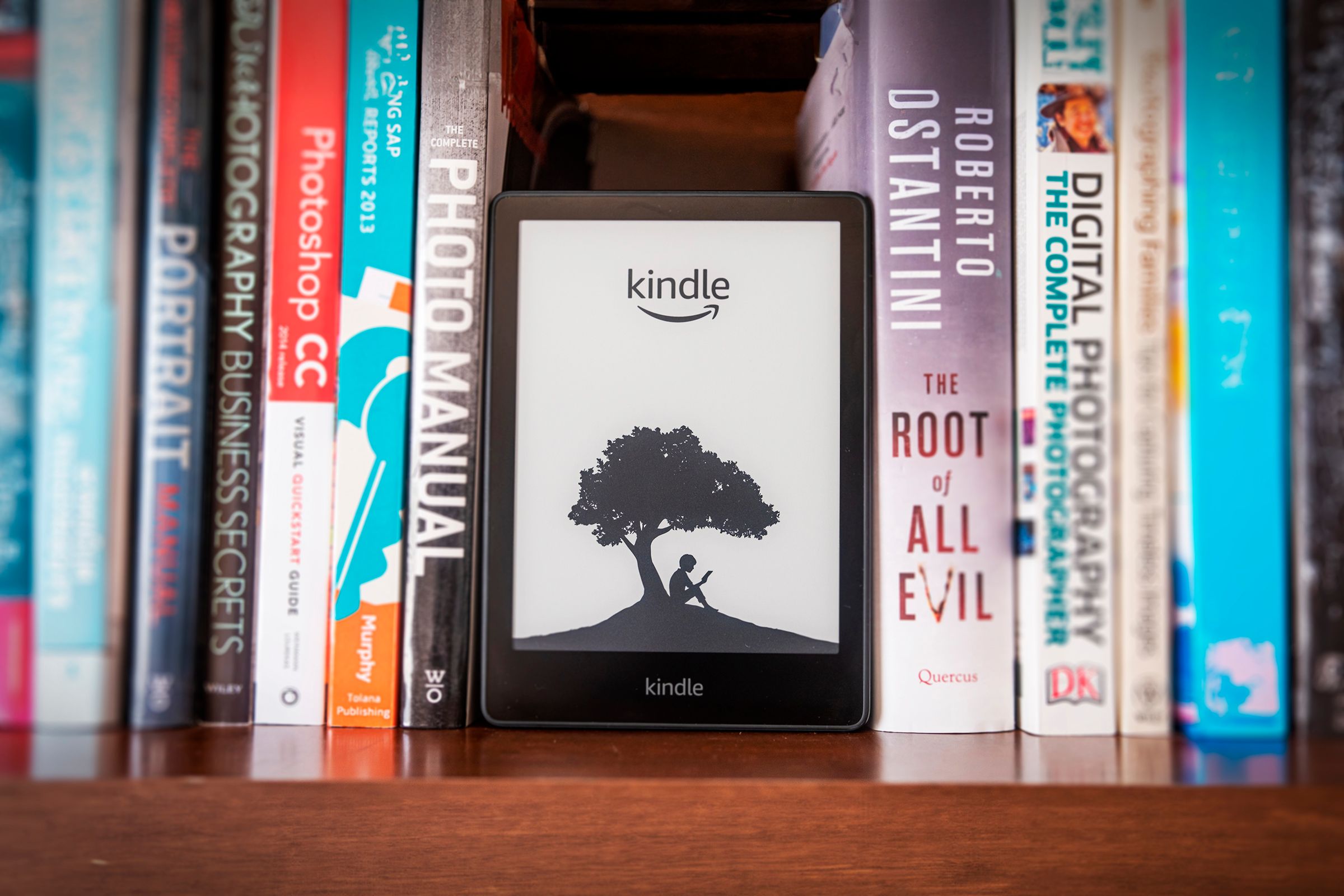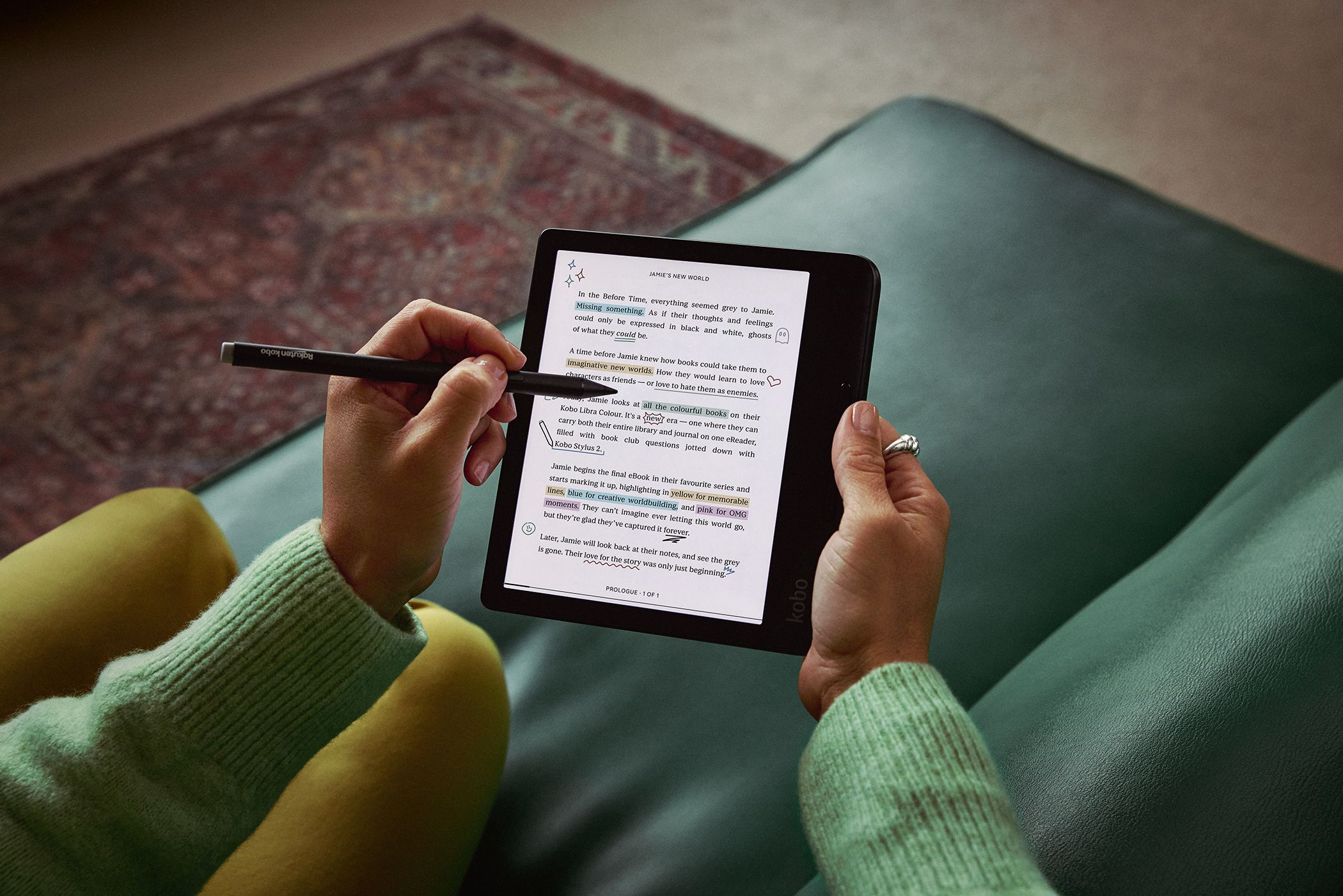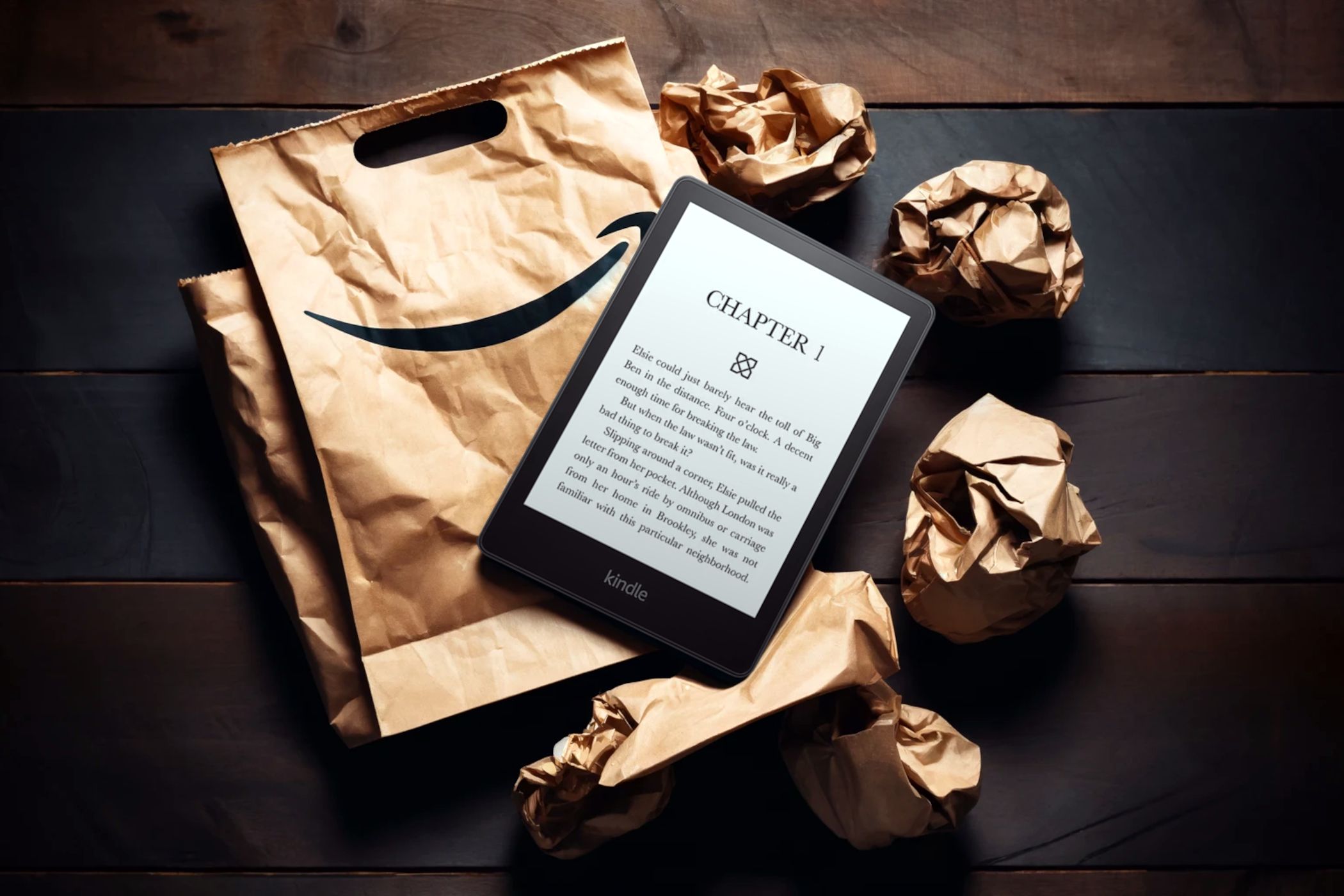Key Takeaways
- Kindles are typically cheaper than Kobo eReaders, but not by a great deal and this may be because Kobo eReaders are more sustainably produced. You also need to pay an extra $10 to avoid ads on Kindles.
- Even without ads, Kindles track more data and try to lock you into Amazon’s services like Kindle Unlimited or the Kindle Store. In contrast, Kobo eReaders have no ads and are more flexible with ebook compatibility.
- Although books may be cheaper on the Kindle Store, Kobo offers a generous price matching scheme, making them a great option for those looking for an alternative to Amazon.
Amazon’s Kindle has dominated the eReader space for the past decade—and then some—but there are many other companies offering great alternatives. Rakuten’s Kobo is one of Kindle’s biggest competitors, but how does it stack up against the Amazon giant?
Kindle Is Cheaper, but Only Just
When it comes to price, Kindle and Kobo are pretty evenly matched. Kobo has six models, ranging from $109.99 for the basic Kobo Nia to $399.99 for the all-encompassing Kobo Elipsa 2E. Kindle’s models are slightly cheaper at face value, with four adult and two kids models available, ranging from $99 to $339, for the Kindle Scribe. All models are available either with ads, or for an extra $10 without ads, and this charge makes the Kindle closer in price to the always-ad-free Kobo.
If you are looking for a cheaper option, Rakuten sells refurbished Kobo devices straight from its website at prices starting from $69.99.
The Kindle Store Has Cheaper Ebooks, but Kobo Is Catching Up
Kindle has long been the king of ebooks, with impressive stats to back it up. The first ebooks popped up on Amazon in 2007, and since then Amazon has become a giant in the publishing world. The Amazon Kindle Store has a whopping 12 million ebooks to choose from, with the average ebook coming in at $12, which is a 32% saving on the paperback version.
When you’re operating an online bookstore of this size, there really is no comparison.
The Kobo bookstore has a little over 2 million ebooks and audiobooks, and they are generally more expensive than their Kindle equivalents. However, Kobo does offer a price matching service, in which you can apply for a refund of the price difference, plus 10%. If the price match is approved, you’ll get this refund as credit in your Kobo account, which you can spend on more books.
When it comes to book subscription services, choosing between Kindle Unlimited and Kobo Plus depends on what you’re looking for. Kobo Plus is $7.99/month for either reading or listening, or $9.99 for both. With a choice of over 1.5 million ebooks and over 150,000 audiobooks, you can add an unlimited number of titles to your Kobo Plus library. Kindle Unlimited is $11.99 a month, during which you can take out up to 20 titles.
Kobo offers a more tailored experience but can’t rival Kindle in its sheer number of books to choose from.
Kobo Is More Eco-Conscious
When it comes to being mindful of the planet, Kobo is much more transparent about its goals and achievements. Amazon refers to making packaging recyclable and using recycled materials in its devices, but generally avoids specifics when it comes to the longer term sustainability of the Kindle. Rakuten, however, has a consistent track record of transparency and sustainability that encompasses the entire life cycle of a Kobo, from manufacturing to recycling.
Since 2022, all Kobo devices have been manufactured with eco-conscious materials, according to Rakuten’s Sustainability page. Every Kobo has an exterior of over 85% recycled plastic, which includes 10% ocean-bound plastic. Kindle models vary but generally use between 30 and 75% recycled plastic. When it comes to delivery, Rakuten offsets 100% of its carbon emissions associated with shipping eReaders.
Rakuten is currently in the process of launching a repair service, but if your Kobo is well and truly dead, and you happen to be in the US or Canada, Rakuten also offers a free eRecycling scheme in which you can mail your Kobo back to Rakuten to be broken down into reusable glass and plastic.
Of course, the most sustainable eReader is the one that already exists, so if you don’t want to buy a brand new one, Rakuten sell second-hand refurbished Kobos directly from their website.
It has to be said that Kobo is providing a masterclass on sustainable eReaders that Kindle isn’t keeping up with, so if sustainability is important to you, Kobo is the way to go.
Kobo Rivals Kindle for Hardware Quality
There really isn’t much in it when it comes to hardware. Most recent eReaders use eInk Carta 1200 300PPR displays, so the resolution will be comparable. All Kobo screens are made of plastic, so if you prefer glass, that is only available in the more high-end Kindle models. However, if you are looking for a device with a blue light filter, you can pick from any Kobo, but only the most expensive Kindle.
Kobo storage goes up to 32GB, whereas you can get Kindles with 64GB, although this won’t particularly make a difference unless you plan on having over 24,000 books on your device.
If you’re looking for something specific, chances are that both Kindle and Kobo will have an eReader that suits you. All the possible features are available in both: waterproofing for those who love to read in the bath, color eInk for the comic readers, and note-taking compatibility for the margin scribblers. Kobo and Kindle each have devices that can do it all, and do it to a fairly similar quality.
Kindle Is a Closed Environment; Kobo Is More Customizable
It is possible to have a Kindle and avoid spending with Amazon but it’s more clunky. The Kindle is heavily integrated into the Amazon environment and can be a bit hostile when it comes to side-loading books. Kindles only support ebooks in the AZW file type, which only come from the Kindle store itself.
You can get around this with a free and open source ebook management program called Calibre, that will sort out your eBook library and do the necessary conversions to get books onto your Kindle. This process is just a bit more fiddly.
In contrast, Kobo accepts a whole list of ebook file types, allowing for easy side-loading and avoiding pigeonholing you into only buying from the Kobo store out of convenience.
Kobo Doesn’t Have Adverts and Collects Less of Your Data
One of Kindle’s biggest downfalls is how infused with Amazon it is. Amazon tracks every single interaction you have with your Kindle and this data is used “to provide customers with products and services, pay content providers and improve the reading and shopping experience.” In an age where online privacy is becoming more important, I try to keep as much of my data out of the hands of huge corporations, particularly when this data is being used to serve targeted adverts to me.
Unless you pay to avoid them, Kindles will also serve you advertisements on your lock screen. Even when you’ve paid the extra $10 for an “ad-free” Kindle, you still get encouraged to subscribe to Kindle Unlimited or use Goodreads, another Amazon product, as well as all the adverts masquerading as book recommendations. Personally, I find constant advertisements annoying, and don’t want to be swiping past adverts on a device I’ve already paid for.
Kobo provides a more pure and simple reading experience. Its eReaders don’t try to advertise to you, and it is simple to enable or disable data sharing in the Kobo settings. It feels like the eReader is just that: an eReader. You would think that would be the case for all eReaders, but unfortunately not.
Kindle vs. Kobo: Who Comes Out on Top?
It is clear that both Kindle and Kobo are great options when considering which eReader is for you. For the average reader, either device will do the job. If you are happy to subscribe to the Amazon environment and the restrictions that entails, a Kindle will be a really solid choice. But if you are looking to be a bit more environmentally conscious when it comes to your reading, Kobo might be the smarter choice, and one that comes with the added freedom of customization.








